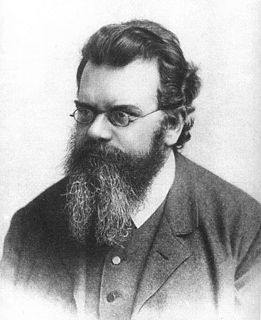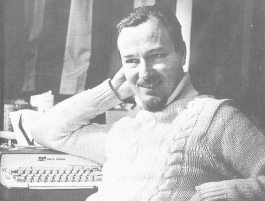A Quote by Ludwig Boltzmann
To go straight to the deepest depth, I went for Hegel; what unclear thoughtless flow of words I was to find there! My unlucky star led me from Hegel to Schopenhauer . . . Even in Kant there were many things that I could grasp so little that given his general acuity of mind I almost suspected that he was pulling the reader's leg or was even an imposter.
Related Quotes
Protestantism, of course, is much more explicitly divided into different traditions - the Pentecostals, the Anglicans. But there is the main tradition of Protestantism that comes out of the Reformation and that produced people like Kant and Hegel and so on, who are not normally thought of as being people writing in a theological tradition, although Hegel, of course, wrote theology his whole life.
[T]ruly to escape Hegel involves an exact appreciation of the price we have to pay to detach ourselves from him. It assumes that we are aware of the extent to which Hegel, insidiously perhaps, is close to us; it implies a knowledge, in that which permits us to think against Hegel, of that which remains Hegelian. We have to determine the extent to which our anti-Hegelianism is possibly one of his tricks directed against us, at the end of which he stands, motionless, waiting for us.
Since substance is infinite, the universe as a whole, i.e., god, Hegel is telling us that philosophy is knowledge of the infinite, of the universe as a whole, i.e, god. You cannot get more metaphysical than that. I think that Hegel scholars have to admit this basic fact rather than burying their heads in the sand and trying to pretend that Hegel is concerned with conceptual analysis, category theory, normativity or some such contemporary fad.
When I was little, I used to go to the local ice-skating rink. In my mind, I always felt like I could twirl and jump, but when I got out onto the ice, I could barely keep my blades straight. When I got older, that's how it was with people: In my mind, I am bold and forthright, but what comes out always seems to be so meek and polite. Even with Evan, my boyfriend for junior and most of senior year, I never quite managed to be that skating, twirling, leaping person I suspected I could be. But today, apparently, I can skate.
History is one long chain of reflections. Hegel also indicated certain rules that apply for this chain of reflections. Anyone studying history in depth will observe that a thought is usually proposed on the basis of other, previously proposed thoughts. But as soon as one thought is proposed, it will be contradicted by another. A tension arises between these two opposite ways of thinking. But the tension is resolved by the proposal of a third thought which accommodates the best of both points of view. Hegel calls this a dialectic process
If a book were written all in numbers, it would be true. It would be just. Nothing said in words ever came out quite even. Things in words got twisted and ran together, instead of staying straight and fitting together. But underneath the words, at the center, like the center of the Square, it all came out even. Everything could change, yet nothing would be lost. If you saw the numbers you could see that, the balance, the pattern. You saw the foundations of the world. And they were solid.
One is not unpopular because he uses peculiar expressions; that just so happens; such terms become a fad, and by and by everybody, down to the last simpleton, uses them. But a person who follows through an idea in his mind is, and always will be, essentially unpopular. That is why Socrates was unpopular, though he did not use any special terms, for to grasp and hold his 'ignorance' requires greater vital effort than understanding the whole of Hegel's philosophy.
































